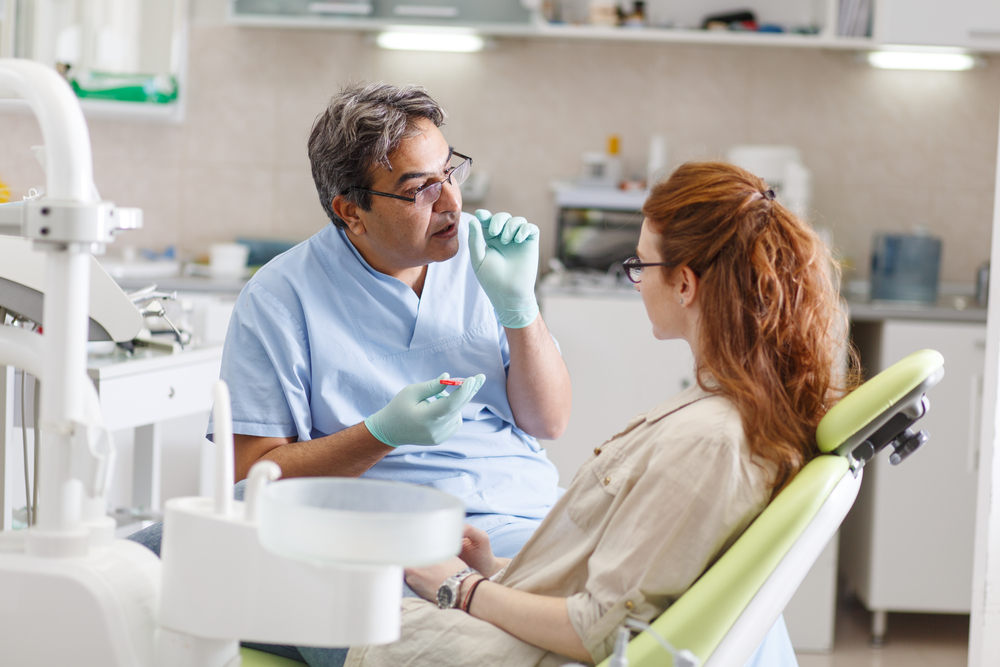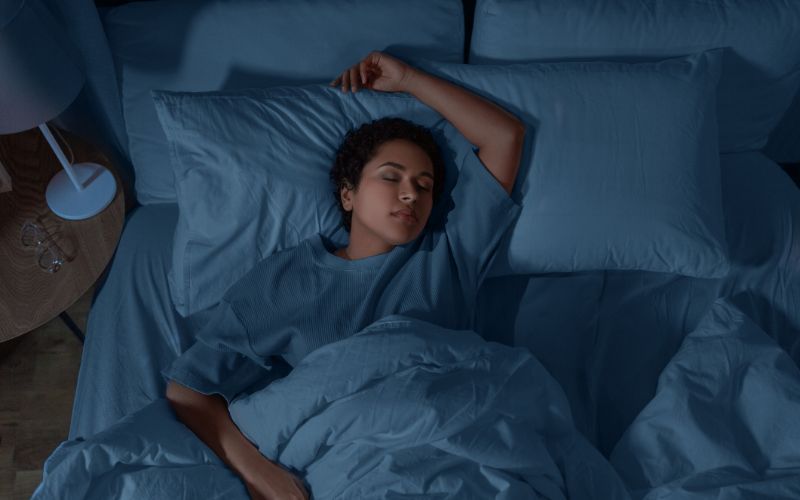Recognizing the Signs
Sleep apnea can lead to life-threatening conditions, it’s important to seek treatment as soon as possible. Familiarizing yourself with the symptoms of sleep apnea could save your life or the life of someone you love. The three types of sleep apnea are:
Obstructive Sleep Apnea (OSA)
Central Sleep Apnea (CSA)
Complex/Mixed Sleep Apnea (MSA)

Risk Factors for OSA
There’s no single cause of sleep apnea, but a number of risk factors that can play a role in increasing your risk for developing sleep apnea. These risk factors include:
- Excess Weight
- Narrowed Airway
- High Blood Pressure (Hypertension)
- Smoking
- Diabetes
- Family History of Sleep Apnea
Sleep apnea can affect people of all age groups, even children and young adults. Tonsil size and jaw size can contribute to sleep apnea.

Symptoms of Sleep Apnea

Daytime Symptoms
If you feel excessively fatigued or drowsy, you could be at risk for automobile accidents and have reduced productivity at work, which can lead to job loss.
You may have difficulty concentrating and feel depressed or irritable often. When you wake up in the morning, it’s common to have a headache, sore throat, and dry mouth.

Nighttime Symptoms
Other nighttime symptoms include:
- Gasping for air during sleep
- Pauses in breathing
- Waking up to use the bathroom frequently

Symptoms in Children
- Bedwetting
- Night sweats
- Learning and behavior disorders
- Problems at school
- Unusual sleep positions
- Restlessness
- Pauses in breathing
Frequently Asked Questions
What are the daytime symptoms of OSA?
If you’ve been diagnosed with OSA but haven’t sought treatment, your daily routine could be affected by daytime symptoms including:
- Excessive daytime fatigue
- Feeling drowsy/sleepy during routine activities
- Poor concentration
- Depression or irritability
- Early morning headaches
What are the nighttime symptoms of OSA?
Unlike the daytime symptoms of OSA, the nighttime symptoms are much harder to spot on your own. If you or somebody you care about shows signs of any of the symptoms below, please seek help from Dr. Garceau, our expert sleep dentist.
Nighttime symptoms of sleep apnea are as follows:
- Choking or gasping for air during sleep
- Loud or disruptive snoring
- Restless sleep
- Frequent visits to the bathroom
- Witnessed pauses in breathing
What are the potential consequences of untreated sleep apnea?
Whether you’ve been diagnosed or not, if you don’t seek treatment, in some rare cases, sleep apnea can cause death. There are other consequences including heart disease and heart attack, high blood pressure, stroke, fatigue-related motor vehicle and work accidents, and a decreased overall quality-of-life.
If you or a loved one are experiencing any of these symptoms, please contact our office and speak with our sleep apnea specialist, Dr. Roberta Garceau. She will help you get the diagnosis and treatment that you deserve.
Sleep Apnea Treatment Can Help
If you notice the symptoms of sleep apnea in yourself or a loved one, seeking diagnosis and treatment could be life-saving. Dr. Garceau is proud to be able to help people like you achieve a higher standard of living by providing treatment that can reinvigorate you. To learn more about sleep apnea and its symptoms, call our office by dialing 860-254-6189 or by clicking the “contact us” button to the right. We’ll be happy to help you.
